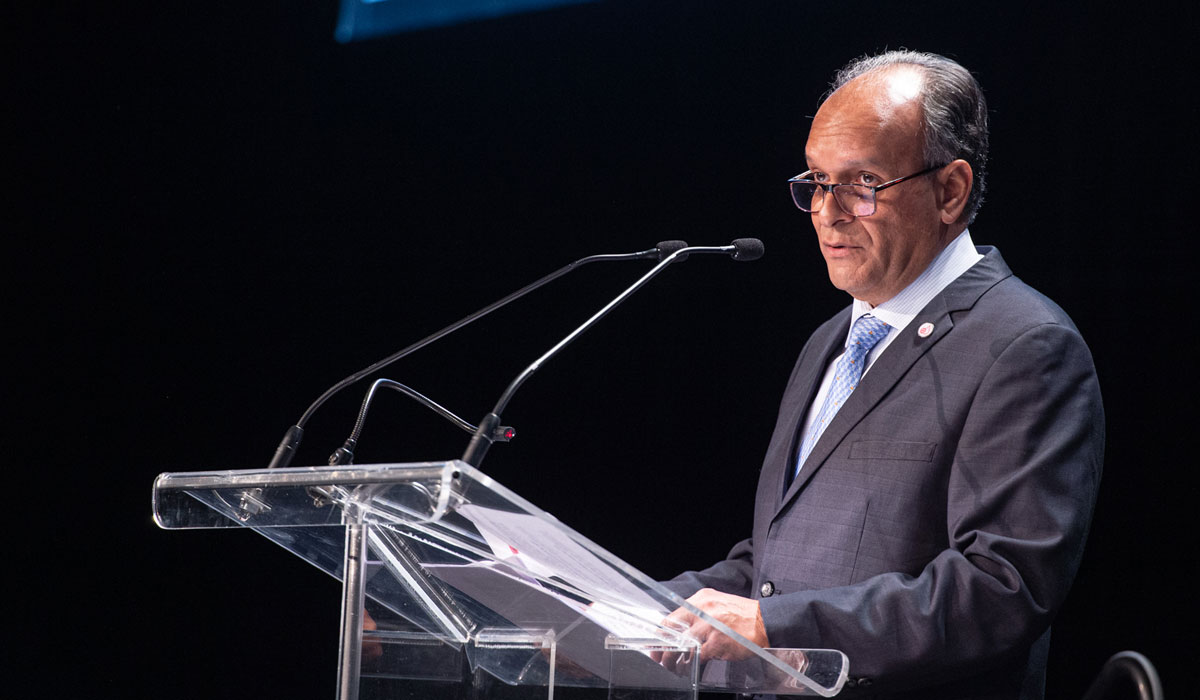Cesar Garrido, WFH President, began his plenary by congratulating all participants praising the community for supporting two WFH firsts—and global firsts—in our field: in 2020, the very first virtual summit, and now, in 2022, the very first hybrid Congress. He said the success of these two events is driven by all those who worked hard to develop high-quality experience for participants, and the community who wholeheartedly embraced the new formats and enthusiastically took part.
Garrido spoke about the new WFH strategic direction. He said that to develop this strategic plan, the WFH established priorities—via consultations with a range of stakeholders—that allow it to be more efficient and achieve a bigger impact. This impact is now being achieved by increasing the capacity of national member organizations (NMOs) and hemophilia treatment centres (HTCs) in four areas: better diagnosis; adequate care and treatment; collection and dissemination of data; and advocacy for safe and sustainable treatment and care.
We have much more experience than 20 years ago if we compare this Congress with the Montreal Congress of 2000. We have more NMOs, and many more trained volunteer HCPs and NMO leaders… and we are eager, very eager to succeed.
- Cesar Garrido, President of the WFH
Cesar also spoke about further supporting national member organizations (NMOs), strengthening global advocacy efforts, and forging stronger relationships with other multilateral and regional organizations. He also talked about the importance of continuing to make difference via the many WFH programs active around the world. For example, the WFH Humanitarian Aid Program hit a major milestone in 2021: over 1 billion IUs of factor have now been distributed since the Program’s expansion in 2015.
The WFH President finished his plenary by saying he is hopeful about the future, and optimistic that every day brings us closer to the WFH vision of Treatment for All.












